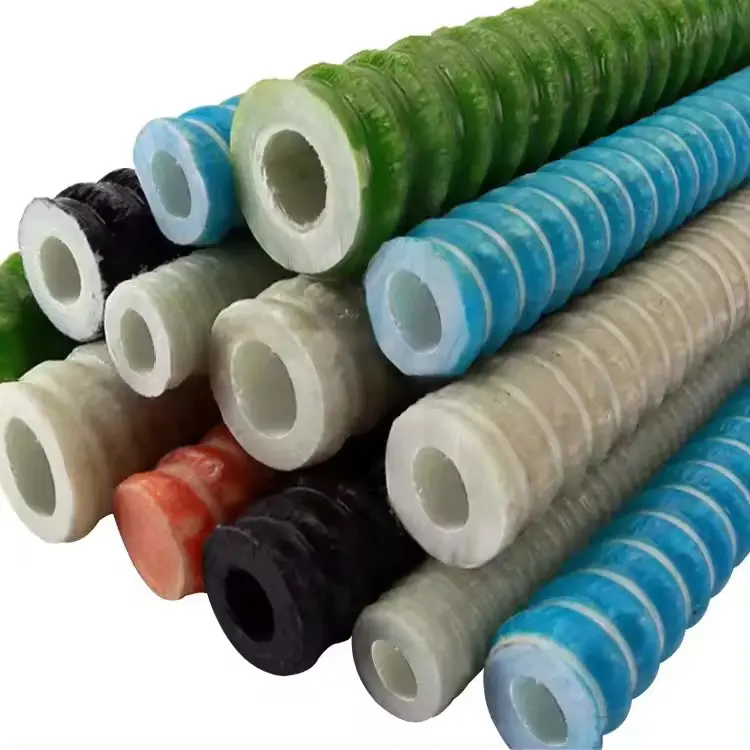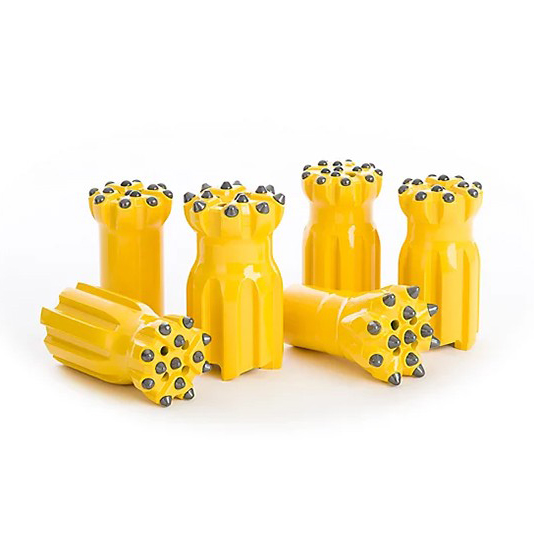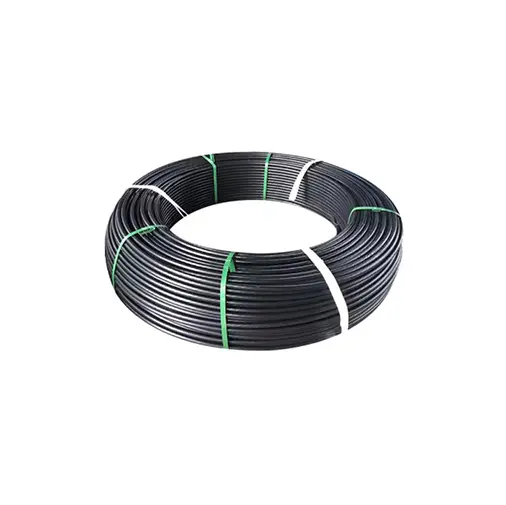Fiberglass rock bolts are revolutionizing the way we reinforce underground structures. With their lightweight yet robust nature, these bolts offer a reliable alternative to traditional steel bolts. In this article, we'll delve into the world of fiberglass rock bolts, exploring their benefits, applications, and why they are becoming the go-to choice for many industries.
What Are Fiberglass Rock Bolts?
Fiberglass rock bolts are composite materials made from glass fibers embedded in a resin matrix. These bolts are used to reinforce rock masses in tunnels, mines, and other underground structures. The fiberglass provides high tensile strength while keeping the bolt lightweight and corrosion-resistant.

Alt: Fiberglass rock bolts ready for installation
Why Choose Fiberglass Over Steel?
Choosing fiberglass over traditional steel rock bolts presents several advantages:
- Corrosion Resistance: Fiberglass bolts are impervious to corrosion, making them ideal for environments where moisture and chemicals are present.
- Lightweight: They are significantly lighter than steel, reducing transportation and handling costs.
- Non-Conductive: Fiberglass is electrically insulating, which is crucial in certain mining operations.
- High Tensile Strength: Despite being lightweight, they offer comparable tensile strength to steel bolts.
Applications of Fiberglass Rock Bolts
Fiberglass rock bolts are versatile and used in various sectors:
- Mining: To reinforce mine shafts and prevent collapses.
- Tunneling: Providing support during tunnel excavation.
- Construction: Stabilizing slopes and excavation sites.
- Marine Structures: Due to their resistance to saltwater corrosion.
Installation Process Explained
Installing a fiberglass rock bolt involves the following steps:
- Drilling the Hole: A hole is drilled into the rock using a drill and tap method.
- Preparing the Bolt: The fiberglass bolt is cut to the required length.
- Applying Adhesive: An epoxy or resin adhesive is used to secure the bolt.
- Inserting the Bolt: The bolt is inserted into the hole and rotated to ensure even adhesive distribution.
- Curing: Allow time for the adhesive to cure, securing the bolt in place.

Alt: Technician installing a fiberglass rock bolt
Understanding the Threaded Fiberglass Design
The threaded fiberglass design allows for nuts and washers to be attached, enhancing the bolt's load-bearing capacity. The threads are molded into the bolt during manufacturing, ensuring a secure fit with other components.
How Do Fiberglass Bolts Resist Corrosion?
Fiberglass bolts resist corrosion due to their composite nature:
- Non-Metallic: They lack metal components that would typically oxidize.
- Resin Matrix: The resin acts as a barrier, protecting the glass fibers from environmental factors.
- Chemical Resistance: Fiberglass is resistant to acids, bases, and other corrosive substances.
Comparing Tensile Strength: Fiberglass vs. Steel
While steel is known for its strength, fiberglass bolts offer impressive tensile strength with added benefits:
- Fiberglass Tensile Strength: Approximately 600 MPa
- Steel Tensile Strength: Ranges from 400 to 700 MPa
Fiberglass provides sufficient strength for most applications, with the added advantage of being lightweight and corrosion-resistant.
Common Questions About Fiberglass Bolts
1. Can fiberglass bolts be used underwater?
Yes, their corrosion resistance makes them ideal for underwater applications, such as reinforcing the hull of a boat.
2. How do fiberglass bolts handle shear forces?
Fiberglass bolts have good shear strength, suitable for applications where shear forces are a concern.
3. Are there any electrical considerations?
Fiberglass is non-conductive, making it safe for use near electrical installations.
Maintenance and Repair Tips
- Regular Inspections: Check for any signs of damage or wear.
- Avoid Over-Tightening: Excessive force can crack the fiberglass.
- Use Appropriate Tools: When drilling and tapping, use tools designed for composite materials.
Where to Get Quality Fiberglass Rock Bolts?
At Fiberglass Frp, we specialize in high-quality fiberglass rock bolts that meet international standards. Our products are designed for durability and performance in the most demanding environments.

Alt: High-quality fiberglass products ready for shipment
Conclusion
Fiberglass rock bolts represent a significant advancement in underground support technology. Their combination of strength, corrosion resistance, and lightweight make them an excellent choice for various applications. By understanding their benefits and proper installation methods, industries can enhance safety and efficiency in their operations.
Key Takeaways
- Fiberglass rock bolts offer a corrosion-resistant alternative to steel.
- They are lightweight yet provide high tensile and shear strength.
- Ideal for mining, tunneling, construction, and marine applications.
- Proper installation and maintenance ensure longevity and performance.
Looking for reliable fiberglass rock bolts? Visit our Bolt page for more information.
Post time: 12 月-19-2024














